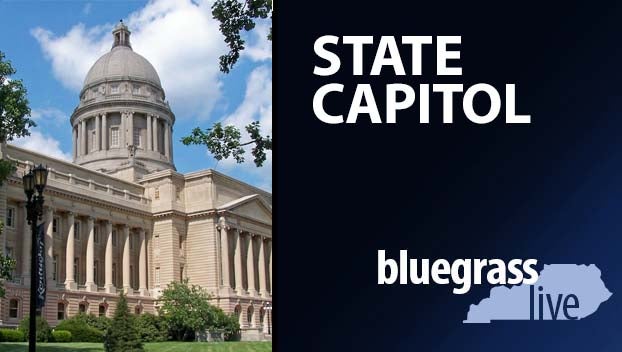Kentucky House passes bill that would require assigning police officers to every school campus
Published 12:17 pm Wednesday, February 16, 2022
The Kentucky House passed a bill Tuesday aimed at taking another step toward assigning police officers to every school campus — a policy objective since a 2018 school shooting.
The measure would require Kentucky school districts to have an officer assigned to each campus by August. But House lawmakers included a provision recognizing that many districts are struggling to meet the standard because of insufficient funding or law enforcement understaffing.
Under the bill, those districts would work with the state school security marshal to work out a plan to achieve the expectation of having a school resource officer at each campus.
“We all know that there’s a shortage of officers and funding,” Republican Rep. Kevin Bratcher, the bill’s lead sponsor, said during the House debate.
More than half of Kentucky’s schools do not have a resource officer, according to an August report from the state school security marshal.
The bill, which cleared the House on a 78-17 vote, advances to the Senate. It’s a follow-up to a sweeping school safety measure passed by Kentucky lawmakers in 2019. That bill was intended to bolster police protection and counseling at schools. It came in response to the 2018 shooting at Marshall County High School in western Kentucky that killed two students and injured more than a dozen others.
Funding has been a chronic problem in implementing the 2019 law.
The new bill sparked a long debate Tuesday in the Republican-dominated House.
The measure’s critics said it isn’t the answer to making schools safer, noting that shootings occurred in schools where armed officers were assigned. What’s needed, they said, is a more comprehensive approach that includes sustained funding for mental health professionals in schools.
Democratic Rep. Mary Lou Marzian spoke of the challenge of assigning one officer to a large school, saying: “How’s that going to stop a shooting if that armed officer is at one end of the building?”
Another Democratic lawmaker, Rep. Josie Raymond, asked what supporters would say to a child who is scared to see “a gun on anybody’s hip in their school building?”
GOP Rep. Jason Nemes later replied: “I would say, ‘thank God that officer is there to protect you.”
Meanwhile, the House passed another bill Tuesday that would make it a misdemeanor crime to intimidate sports officials. The proposal would cover youth leagues to college venues in Kentucky.
If the legislation becomes law, offenders could face up to a year in jail for threatening to injure a sports official or damage a referee’s property. It also would apply to actions intended to “substantially harm” an official’s business or financial interests.
“We are seeing such aggressive behavior toward officials,” said the bill’s chief sponsor, Republican Rep. David Hale, who officiated high school sports for years.
The bill passed the House 89-6 and moves on to the Senate.
Julian Tackett, commissioner of the Kentucky High School Athletic Association, has reported a 25% to 30% drop in the available pool of officials. The COVID-19 pandemic isn’t the only reason for the decline and it’s not due to the compensation officials receive, he told lawmakers recently.
“It’s the environment. It is what they’re subjected to,” he told a legislative committee.
Meanwhile, several Republican state senators unveiled a bill Tuesday aimed at reducing the shortage of nurses in Kentucky — a chronic problem worsened by the COVID-19 pandemic.
The bill aims to make it easier for out-of-state nurses to work in Kentucky by expediting licensing while not sacrificing quality of care, they said. Another key provision would remove what the lawmakers see as arbitrary caps on nursing education programs.
“This bill will help make sure our health care facilities are professionally equipped to care for Kentuckians during moments of need,” said Sen. Robby Mills, one of the bill’s sponsors.
Late last year, Democratic Gov. Andy Beshear declared the state’s chronic nursing shortage to be an emergency and took executive actions to boost enrollment in nurse-training programs.






